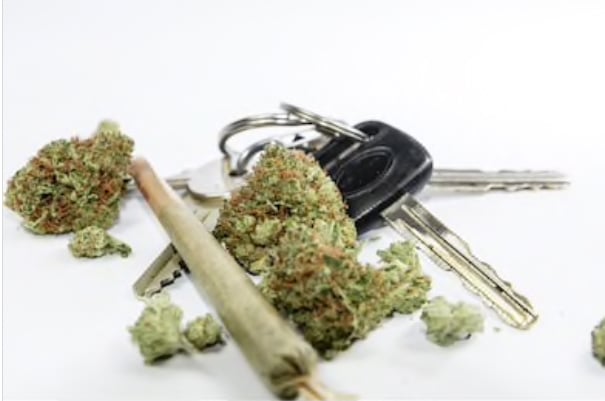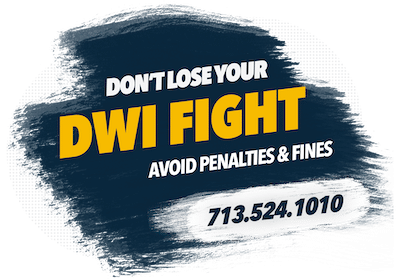
- HOME
- DWI
- What Is A DWI Specialist
- Arrested For DWI?
- DWI 2nd Offense
- DWI 3rd Offense
- Penalties For DWI
- Prior DWI Convictions
- DWI (Driving While Intoxicated)
- DUI (Driving Under The Influence)
- Drunk Driving Lawyer
- .08 Alcohol Concentration
- Felony DWI
- DWI with Child
- Intoxication Assault
- Intoxication Manslaughter
- DWI with CDL
- DWI Expunction
- Drivers License Suspension & ALR
- Impaired Driving vs Drunk Driving
- DWI & Gun Ownership
- Public Intoxication
- BWI (Boating While Intoxicated)
- FWI (Flying While Intoxicated)
- Drug Possession
- AVIATION
- REVIEWS
- PAYMENTS
- INFO
- ABOUT
- About Us
- DWI Specialist J. Gary Trichter
- DWI Lawyer Leslie LeGrand
- DWI Lawyer Aaron White
- DWI Lawyer Gregory Houlton
- Of Counsel Attorneys
- CONTACT
- HOME
- DWI
- What Is A DWI Specialist
- Arrested For DWI?
- DWI 2nd Offense
- DWI 3rd Offense
- Penalties For DWI
- Prior DWI Convictions
- DWI (Driving While Intoxicated)
- DUI (Driving Under The Influence)
- Drunk Driving Lawyer
- .08 Alcohol Concentration
- Felony DWI
- DWI with Child
- Intoxication Assault
- Intoxication Manslaughter
- DWI with CDL
- DWI Expunction
- Drivers License Suspension & ALR
- Impaired Driving vs Drunk Driving
- DWI & Gun Ownership
- Public Intoxication
- BWI (Boating While Intoxicated)
- FWI (Flying While Intoxicated)
- Drug Possession
- AVIATION
- REVIEWS
- PAYMENTS
- INFO
- ABOUT
- About Us
- DWI Specialist J. Gary Trichter
- DWI Lawyer Leslie LeGrand
- DWI Lawyer Aaron White
- DWI Lawyer Gregory Houlton
- Of Counsel Attorneys
- CONTACT
DRIVING UNDER THE INFLUENCE OF MARIJUANA
When most people think of “DWI” and “DUI” they generally relate it to alcohol.
But with an ever-increasing number of states legalizing marijuana, either for medical or recreational purposes, law enforcement is focusing on driving under the influence of marijuana.
For example, Colorado has legalized s marijuana for medical use and it appears that prescriptions for it are ever increasing.
That said, DWI and DUI arrests are increasing both there and in Texas because of marijuana use.
GET A FREE CONSULTATION
Driving While Intoxicated – Marijuana Laws in Texas versus other states
As of 2018, recreational use of marijuana is legal at the state level in ten states: Alaska, Washington, Oregon, California, Nevada, Michigan, Vermont, Massachusetts, Main and Colorado.
Texas DWI and DUI laws make simple possession of marijuana illegal.
But like Colorado and the other states, Texas makes it illegal to operate a motor vehicle while intoxicated by marijuana.
Interestingly, law enforcement in Colorado and in Texas have seen a dramatic rise in the number of DWI and DUI arrests due to marijuana intoxication.
You can be found guilty of driving while intoxicated under Chapter 49.04 of Penal Code if it is shown that either you lost the normal use of your (1) mental or (2) physical faculties, or (3) you had an alcohol concentration of .08 or greater at the time you were driving.
GET A FREE CONSULTATION
When it comes to the loss of normal use of mental or physical faculties, the law reads
“… not having the normal use of mental or physical faculties by the introduction of alcohol, a controlled substance, a drug, a dangerous drug, a combination of two or more of those substances, or any other substance into the body.”
If you voluntarily consume a substance other than alcohol like marijuana and it causes you to lose the normal use of either your mental or physical faculties, then this definition covers driving under the influence of marijuana.
However, unlike alcohol, there is no per se value for drugs such as marijuana.
Signs That A Driver is Driving Under the Influence of Marijuana
The Marijuana plant (Cannabis Sativa, Cannabis Indica) is the most commonly used illegal drug in the world and behind thousands of arrests every year.
Generally, you must be found in possession of it in some usable quantity to face legal consequences.
The cannabis leaves, stems and seeds contain THC (tetrahydrocannabinol), a psychoactive ingredient that’s absorbed into the user’s bloodstream when smoked or, in some cases, ingested.
Once it’s transported to the brain, it affects certain receptors by overstimulating them and causing the user to feel euphoric or “high.”
These effects can include:
- altered senses
- altered sense of time
- changes in mood
- impaired body movement
- difficulty with thinking and problem-solving
- impaired memory
- hallucinations (when taken in high doses)
- delusions (when taken in high doses)
- psychosis (when taken in high doses)
Measuring intoxication and “No Refusal” programs
Currently, police labs measure alcohol by having the accused citizen submit to either a breath test or a blood test.
Neither the Intoxilyzer 5000 nor the Intoxilyzer 9000, which are the machines used in Texas to quantify breath/blood alcohol concentration, can detect tetrahydrocannabinol or “THC”, the active ingredient in marijuana. However, a blood test can.
Accordingly, many counties in Texas have started to focus on blood testing in DWI and DUI investigations where marijuana is suspected as the intoxicant.
Indeed, many counties have obtained grants to fund “No Refusal” programs where police obtain search warrants to take blood samples.
This sample is then analyzed to obtain a measurable amount of alcohol or other substances, like marijuana, that may be in a person’s blood.
GET A FREE CONSULTATION
DWI and DUI of Marijuana Evidence and Per Se Definitions of Intoxication
In every DWI case, you would expect to see certain pieces of evidence such as a breath or blood alcohol test and a video of the accused performing field sobriety tests.
Blood tests can show traces of marijuana, or more specifically THC, in a suspect’s system, but the State must also prove that the THC caused them to become impaired to a level where they were no longer “normal.”
In Colorado and Washington, where recreational use of marijuana is legal at a State level, that limit is five nanograms per milliliter of blood or five parts per billion.
But, because recreational use of marijuana is not legal in Texas, many prosecutors and judges often look harshly upon any detectable amount of THC found in the driver’s blood.
Texas has no “per se” definition of intoxication by the introduction of marijuana into the system, so courts and prosecutors face an extra “burden of proof” challenge meaning that the arresting officer must conduct a more thorough and meticulous investigation.
In addition to the “loss of the normal use of mental or physical faculties” standard, Texas law provides that a person is considered intoxicated if that person has a BAC of 0.08 or higher, regardless of whether that person has lost the normal use of his or her mental or physical faculties.
In many DWI cases involving marijuana, law enforcement may call a specially trained officer known as a Drug Recognition Expert (DRE) to the scene to aid in the investigation.
The DRE will employ a more thorough battery of tests in an effort to render an “expert” opinion that the person is impaired.
GET A FREE CONSULTATION
The future of DWI Marijuana in Texas
Also, looking to the future, there are many instruments being tested now for use of police on the roadside that will test a person’s saliva for both identification and quantification of THC.
These roadside saliva tests will most likely be in Texas in the near future.
And so, our advice is not to drive if you consumed any marijuana.
A taxi cab fee is much cheaper than that of the bondsman and lawyer.
Should you have any questions, please feel free to contact us at 713-524-1010 or contact us here.
TELL US ABOUT YOUR CASE
Form Submissions have a fast response time. Request your free consultation to discuss your case with one of our attorneys over the phone. The use of this form does not establish an attorney-client relationship.
The information on this website is for general information purposes only. Nothing on this site should be taken as legal advice for any individual case or situation. This information is not intended to create, and receipt or viewing does not constitute, an attorney-client relationship.




